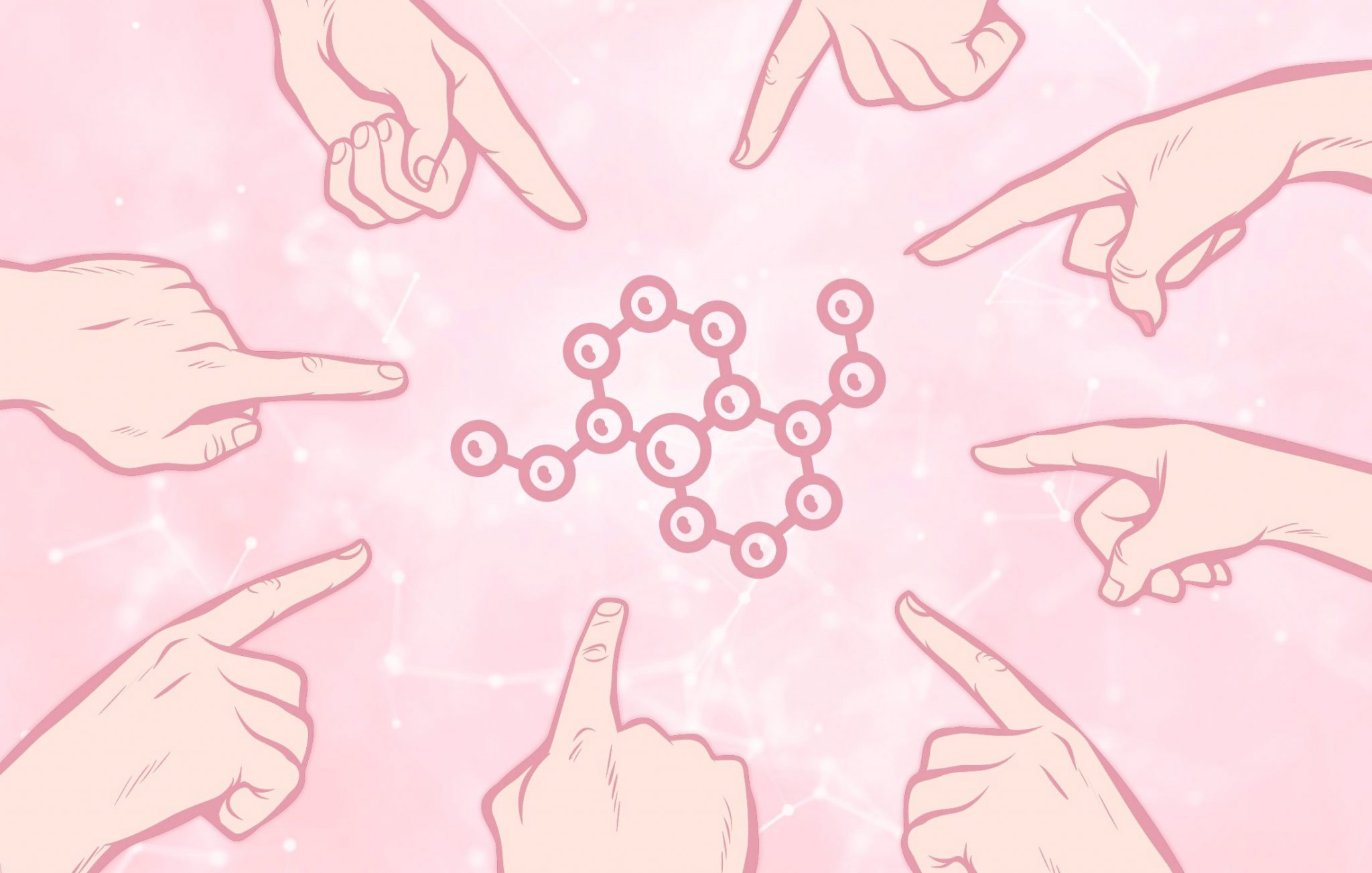Last updated on June 18th, 2019
When it comes to our hormones, we tend to focus on just a few. Our sex hormones, estrogen and progesterone, get most of the limelight, followed closely by our stress hormones, adrenaline and cortisol.
But with over 50 hormones in the body, there are so many more playing just as pivotal a role in how we look and feel each and every day that we don’t hear as much about.
Let’s take a look at a few that you might not know so well.
Calcitonin
This hormone is produced by certain cells in the thyroid gland to help regulate the levels of calcium and phosphate in the blood. We need a precise amount of calcium in the blood to maintain normal nerve function and muscle contraction – including of the heart.
Release of calcitonin is stimulated by an increase in blood calcium levels, and it works to prevent bone breakdown, which in turn prevents the release of more calcium into the blood.
It’s important to note, however, that levels of this hormone or calcium in the blood are not a reflection of your bone health or many other processes calcium is needed for. When you have a blood test for calcium, it will almost always be in the normal range because we have a hormonal regulatory system – involving calcitonin, calcitriol (active vitamin D) and parathyroid hormone – to ensure that.
Parathyroid hormone has an opposing action to calcitonin, and it is the most important regulatory hormone for blood calcium. As the name suggests, this hormone is made by the parathyroid gland, the four lobes of which sit in behind the thyroid gland. If blood levels of calcium drop too low, it sends message to the bones, which essentially act as a reservoir of calcium for the blood, to release some calcium to top up blood levels.
Please know that if you have had your thyroid gland removed, the body is very clever and calcitriol and parathyroid hormone can continue to regulate your blood calcium levels in the absence of calcitonin.
So while dietary calcium intake, your vitamin D status and weight-bearing exercise are all important for bone health, our hormones – including those mentioned above plus others such as estrogen – play an enormous role too.
Testosterone
The role that testosterone plays in male fertility is quite regularly discussed. What’s not talked about as often is the role that testosterone plays in a woman’s body. Women need testosterone but the amount of it and its ratio to other hormones matters immensely. Too much or too little can lead to problems.
Too much and women may experience hair loss on our head, acne and mood changes that usually involve irritability, or we may find hair in places we don’t like such as the chin. Yet we need some testosterone for things like mood, energy, muscle mass, bone health and libido.
Like other sex hormones, women make testosterone in their ovaries and adrenal glands. If we have too much of it, it can be linked to too much of another hormone called insulin, which can occur with polycystic ovarian syndrome (PCOS). In order to address elevated testosterone, it’s almost always necessary to also address elevated insulin levels.
Serotonin
One of our happy, calm, content hormones, low levels of serotonin have been linked with depression. When we think about serotonin and mood most people link it to brain health, but did you know that about 80% of your serotonin is made in your gut? Yep, it can be hard to feel happy or content when you have gut challenges!
We are supposed to make serotonin in the day time and melatonin at night time. Melatonin is our sleep hormone and it works antagonistically to serotonin (i.e. when one goes up the other goes down). But for some people, they end up round the wrong way. If this happens, you might find yourself feeling down and sleepy most of the day but great in the evening. Not ideal for a great quality life, but there are small changes you can make (such as being mindful of reducing your exposure to light at night) that can help to get your melatonin-serotonin production back on track.









